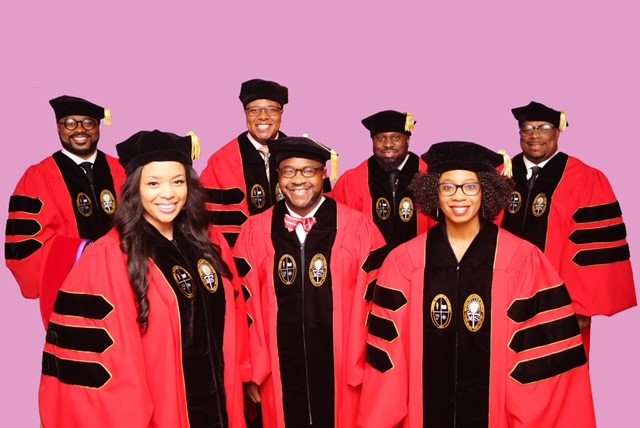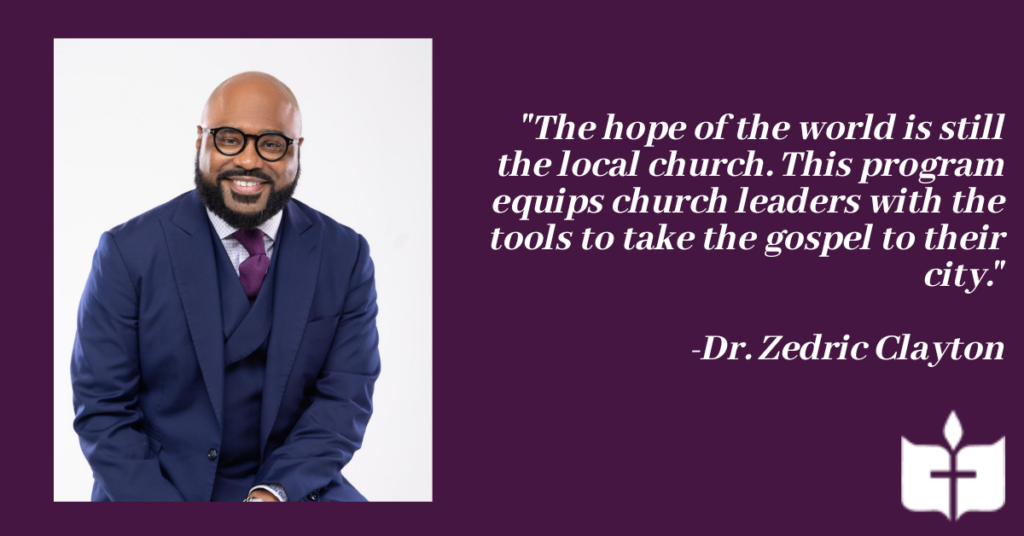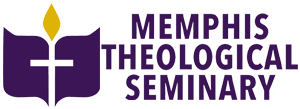
Memphis Theological Seminary Recruiter Dr. Felecia LaVant interviewed the inaugural cohort of the Memphis Theological Seminary Doctor of Ministry in Forming and Growing Churches in the 21st Century regarding their experiences in the program as well as their successes as a result of completing the program. They credit the Forming and Growing Churches track with helping them make successful transitions and thriving in their new ministries.
Q. Dr. LaVant: What attracted you to this particular DMin program?
A. Dr. Zedric Clayton- My passion is church growth and I wanted to be able to contribute to seeing the church grow not only numerically but also spiritually. I also wanted exposure to tools and resources that were consistent with the African American church context. The program has contributed to my success in building leadership and programming in my church context.
A. Dr. Kia Moore-I have always had the desire to plant a church but was not certain of how I would be able to accomplish the vision. I was particularly excited about the opportunity to complete the Doctor of Ministry program.
A. Dr. Gwin-Miller: The opportunity to be a reflective practitioner. Speaking from what you know works in your context, was attractive to me. To allow you to do research and innovate in your current context.
A- Dr. Jordan Taylor: Having been a preacher and having experienced church since I was young, I saw the program as relevant for today’s time. I felt it would enable me to be a better resource to assist small to mid-size churches, primarily local churches, many of which do not have the resources or the strategy and structure that lends itself towards growth. I wanted to assist churches like the one I grew up in and am committed to.

Q-Dr. LaVant: Each of you experienced some level of elevation or promotion either during or after the program. What was your expectation of the program? Did you expect the program to prepare you for the context you were in, or did you expect it to result in additional ministry opportunities?
A. Dr. Gwin-Miller: There was a point in the program where it seemed that each of us had experienced some type of elevation or promotion, which appeared to be simultaneous, but none of us had really expected the opportunities to materialize as they did. We literally personally lived out what it means to be formed and to grow, which helps us better lead forming and growing institutions. We were able to capitalize on our own personal growth and formation to help us be better practitioners at helping form and grow the various contexts where we served.
A-Dr. Terry Mackey: I did not expect the program to result in my leaving the church I was serving when I entered the program. I expected to retire from that church, however the opportunity arose to pastor a new church, and the tools and resources I became familiar with during the doctoral program helped me to be prepared to not only qualify for the new pastorate, but to navigate the terrain of the new church, which had also had a satellite location, and was in a different city and state. Due to covid and some other factors, the church has had to shut down the additional satellite campus, but some of the lessons I learned in the program helped us to re-vision and successfully return to one campus.
A. Dr. William Smith III: Part of what we learned in the program was that not only would we gain opportunities, but we also had to lose some stuff as well. We experienced personal losses: Family, marriage, churches, jobs, job opportunities, etc., and we realized that the personal growth and formation that we experienced from these losses, is exactly the same way churches are formed and grow.

Q. Dr. LaVant: Do each of you believe that you would have been able to weather the losses, and transitions you experienced as well as you did, especially during an unpredictable pandemic, without the tools and resources you developed and acquired during the program?
A. Dr. Clayton: The program helped me to successfully transition from pastoring a rural, small to mid-size church in Clarksdale, MS to a larger urban church in Memphis, TN where I currently serve. The program helped me personally define what God was allowing us to experience as church and pastor.
A. Dr. Gwin-Miller: The cohort experience itself, the relationships developed and the support of my peers was equally as important as the tools developed and resources acquired, to help us to thrive in our new opportunities.
A. Dr. David Anderson: The support of my peers in the cohort helped me to not only survive but thrive in the midst of uncertainty, particularly transitioning from the position of Executive Pastor at a mega church, to a staff position at another church, to not serving at a church, to ultimately being elected as pastor of a church that needed revival and sustenance during the pandemic. Growth was a big emphasis for everyone, especially in the midst of the obvious decline that we were observing in churches.

Q. Dr. LaVant: What tools did you develop in your DMin program that have contributed to your success in your current context?
A. Dr. Clayton: One of the best tools that we developed is utilizing a model of personal evangelism by disciples in the church; simply encouraging members to invite others to church. We also identified technological tools that help individuals connect with the church virtually. The program helped us understand and articulate to our members that is not just the pastor’s job to grow the church, but there is a dual responsibility between pastor and people. “Sheep beget sheep”. I learned that the tools were transferable between the rural church and the urban church.
A. Dr. David Anderson: In the program we learned the importance of being missional and intentional in our activities. Getting out and doing the real work of the church, outreach and service. Creating a “stickiness” which encourages members to not just attend, but become involved in the work of ministry has helped our church grow and retain members.
A. Dr. William Smith III: I have used the tools of evangelism and growth not only in the church but also in my other vocations as an educator and chaplain.

Q. Dr. LaVant: Did you find the structure of the DMin program to be beneficial?
A. Dr. David Anderson: I appreciated the variety of instructors we had in the program from various denominational backgrounds and also who presented different perspectives. Not only did it allow us to look at church growth from different perspectives, but the fact that all of the professors not only had served in leadership in various denominations and contexts, they also shared their own successes and failures which was very beneficial, and also kept the program exciting. The fact that each professor has served in real ministry, and was not just teaching theory made all the difference in the world. Our professors shaped and informed our theological perspectives, challenged our worldviews, and also helped to strengthen us academically, which was helpful in completing our projects.

Dr. Zedric Clayton: The Forming and Growing Churches cohort is invaluable in the 21st century church because it is necessary to have practitioners who can articulate and execute strategy to allow churches to grow, in what we now know as the new era of ministry. We now understand that some of the beliefs and practices that we held near and dear pre-covid, are no longer true post-covid.
A. Dr. Kia Moore: The program and the variety of professors who brought different experiences to the class, especially another female church planter, gave me the courage as an African American woman to plant a church which has now grown to almost 500 members that have collectively given over $150,000 to people and causes in need. 30% of our membership is actively serving in a volunteer or leadership capacity and our small groups are growing at a healthy rate.

Q. Dr. LaVant: Do you think the program has helped you not only be elevated in ministry, but also be sustained in ministry?
A. Dr. Jordan Taylor: My project focus on membership retention has enabled me to help my church grow not only numerically but also in spiritual maturity.
A. Dr. Kia Moore: I am certain that The Church at the Well would not have sustained such healthy growth and viability without the tools I have gained from the doctoral program at MTS.

